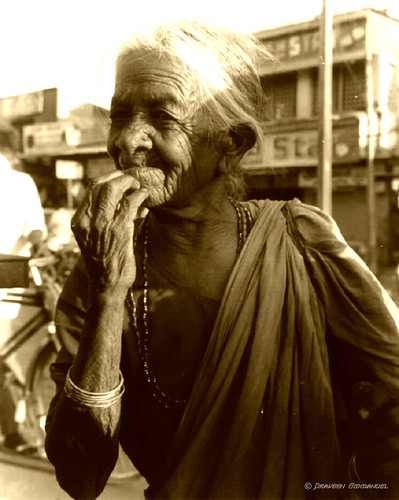Americans calling the customer service lines of their airlines, phone
companies and banks are now more likely to speak to Mark in Manila than
Bharat in Bangalore.
Over the last several years,
a quiet revolution has been reshaping the call center business: the rise of the Philippines,
a former United States colony that has a large population of young
people who speak lightly accented English and, unlike many Indians, are
steeped in American culture.
More Filipinos — about 400,000 — than Indians now spend their nights
talking to mostly American consumers, industry officials said, as
companies like AT&T, JPMorgan Chase and Expedia have hired call
centers here, or built their own. The jobs have come from the United
States, Europe and, to some extent, India as outsourcers followed their
clients to the Philippines.
India, where offshore call centers first took off in a big way, fields
as
many as 350,000 call center agents, according to some industry
estimates. The Philippines, which has a population one-tenth as big as
India’s, overtook India this year, according to Jojo Uligan, executive director of the Contact Center Association of the Philippines.
The growing preference for the Philippines reflects in part the
maturation of the outsourcing business and in part a preference for
American English. In the early days, the industry focused simply on
finding and setting up shop in countries with large English-speaking
populations and low labor costs, which mostly led them to India.
But executives say they are now increasingly identifying places best suited for specific tasks. India remains the biggest destination by far for software outsourcing, for instance.
Executives say the growth was not motivated by wage considerations.
Filipino
call center agents typically earn more than their Indian counterparts
($300 a month, rather than $250, at the entry level), but executives say they are worth the extra cost because
American
customers find them easier to understand than they do Indian agents,
who speak British-style English and use unfamiliar idioms. Indians, for
example, might say, “I will revert on the same,” rather than, “I will
follow up on that.”
It helps that Filipinos learn American English in the first grade, eat
hamburgers, follow the N.B.A. and watch the TV show “Friends” long
before they enter a call center. In India, by contrast, public schools
introduce British English in the third grade, only the urban elite eat
American fast food, cricket is the national pastime and “Friends” is a
teaching aid for Indian call center trainers. English is an official
language in both countries.
The Philippines has “a unique combination of Eastern, attentive
hospitality and attitude of care and compassion mixed with what I call
Americanization,” said Aparup Sengupta, chief executive of Aegis Global,
an outsourcing firm based in Mumbai, India, that acquired Manila-based
People Support in 2008 and now employs nearly 13,000 Filipinos. American
companies are reluctant to discuss their outsourcing strategies, but
privately some executives acknowledged that early on, they focused
primarily on saving money. But as they gained experience in different
countries, they realized that was not the best strategy.
“Certain phrases people use and idioms are important,” said an executive
at a large American company that handles service calls through the
Philippines. He spoke on the condition that he and his firm not be
identified. “We are getting better at it, but of course it is still a
hot button.”
Analysts said call centers in the Philippines appeared to have helped
American businesses respond to complaints from consumers who said they
could not understand Indian agents. But it is unlikely to satisfy
critics who say outsourcing is sending too many jobs abroad as millions
of Americans struggle to find work.
This year, for instance, US Airways stopped outsourcing customer service
to Manila and hired 400 agents in Arizona, California and North
Carolina as part of an agreement with the Communications Workers of
America union.
Some American companies like Delta Airlines have said they moved call
centers back to the United States to appease angry customers who wanted
better English. Entry-level American call center agents earn about
$20,000 a year, about five times as much as similar agents in the
Philippines and six times as much as Indian agents.
Nevertheless, the financial benefits of outsourcing remain strong enough
that the call center business is growing at 25 to 30 percent a year
here in the Philippines, compared to 10 to 15 percent in India,
according to Salil Dani, research director at the Everest Group, a firm
that tracks the market.
American outsourcing or back-end companies like I.B.M., Accenture and
Convergys along with Indian firms like Aegis, Infosys and Tech Mahindra
have thousands of employees working from gleaming glass towers and even
inside malls, which executives say young workers prefer so they can be
close to shops and restaurants.
In addition to language skills,
the Philippines has better utility infrastructure than India — so companies spend little on generators and diesel fuel.
Also, cities here are safer and have better public transportation, so
employers do not have to bus employees to and from work as they do in
India.
Many of the workers are like Mark, 26, who answers tech support calls
from employees of an American chemical company. He studied engineering
but dropped out of college to support his parents and two younger
siblings. He now makes 26,000 pesos ($600) a month, about the same as
his father, who has a small school-bus business. (The average Filipino
family earns 17,000 pesos a month.)
He spoke on the condition that his full name and the name of his
employer were not revealed because he was not authorized to talk to
reporters. His office is in a new development known as Eastwood City,
east of Manila that, locals said, used to be fields a few years ago.
Now, it is home to companies like I.B.M. and Dell, and has McDonald’s,
Starbucks and bars where happy hour starts at 6 a.m. for call center
workers who want a beer after their shift.
Mark is trim and has sharp features. He wears stylish canvas shoes and a
striped shirt. His accent is more middle America than eastern Manila.
He said his parents made him watch American movies and TV shows, read
English books and speak the language starting at age 5. Still, he said
he was fired from his first call center job after just two weeks because
customers said they could not understand him.
“Sometimes, they would insist on being transferred to an American
agent,” he said. “After a year, I was able to speak in an accent that
they would like to hear.”
But now he is tiring of answering phones and is thinking about trying
his hand at acting because he has a little money in the bank and his
siblings have college degrees and are working.
The call center boom has also benefitted his country, previously a
laggard among Southeast Asia’s tiger economies — its most popular
exports were nurses.
Last year, revenue from outsourcing, which also
includes things like health insurance processing, animation development
and software programming, totaled $9 billion, or 4.5 percent of the
Philippine gross domestic product, up from virtually nothing in 2000. The government has tried to support the industry with tax breaks and subsidies.
In spite of its recent growth, the Philippines is a much smaller
destination for outsourcing more broadly — India earns about 10 times as
much revenue from outsourcing. That is unlikely to change in the
foreseeable future given India’s 1.2 billion people, 31 percent of whom
are 14 years old or younger. (The Philippines has 93 million people,
about 35 percent of them 14 or younger.)
Executives expect the Philippines to continue growing at a fast pace and
move up to higher-value services like accounting or the processing of
insurance claims. But, like India, companies are grappling with higher
costs and losing their best workers because of high domestic inflation
and a shortage of skilled professionals. In the last two years, the
Philippine peso climbed nearly 10 percent against the dollar, to 42.14,
before weakening recently.
If the peso appreciates to 35 to the dollar, many of the call centers in
the Philippines will not survive, said Narasimha Murthy, president of
HGS USA, the American arm of an Indian outsourcing company that employs
4,000 people here. But things look upbeat for now, and Mr. Murthy was
recently in Manila with a prospective American client.
Five years ago, he said, many clients would ask him if customer calls
could be handled in the Philippines. “From that,” he said, “it has gone
to ‘How well will you do it?’ ”












.jpg)




